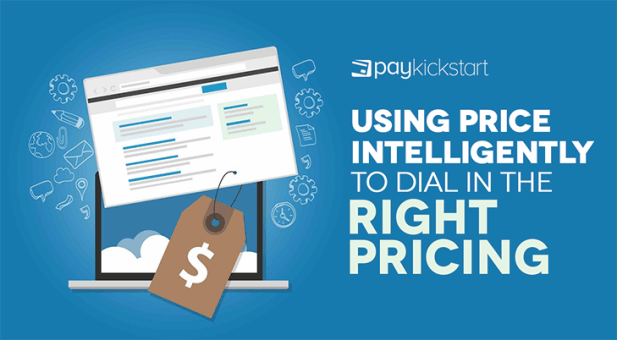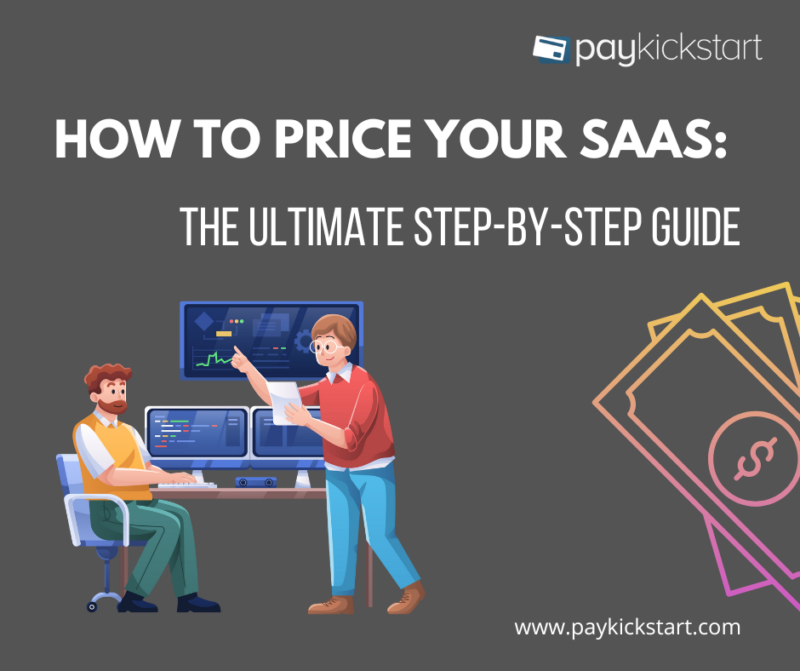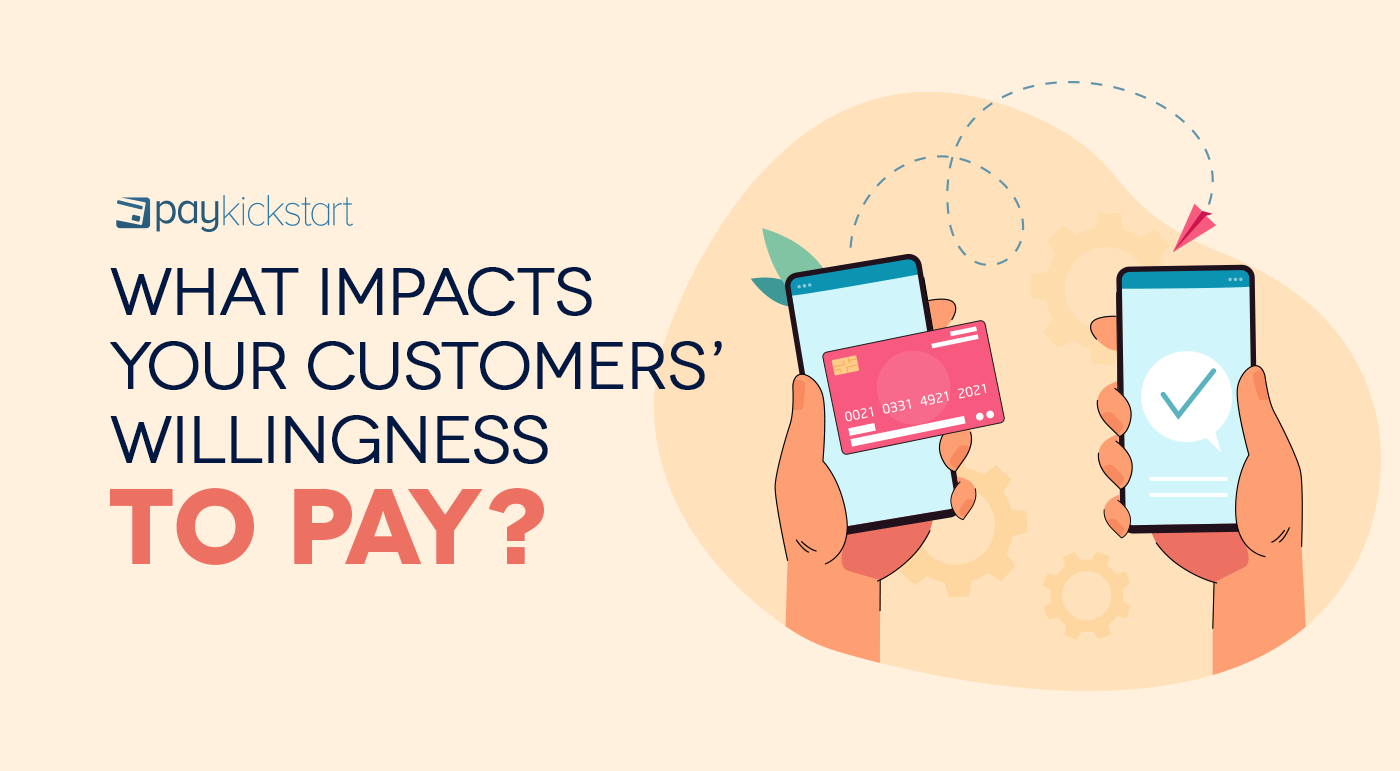Subscription growth hack (by PayKickstart)
Facebook Group - 3,932 members
Visit Group
How much should you charge for your product or software? This turned out to be one of the toughest questions for the PayKickstart team to answer. Picking a price point is quite frankly, difficult. What if you charge too little and leave profits on the table? Or what if you charge too much and it drives would-be customers away?
Many of our clients, likewise, struggle to determine the right price. While PayKickstart’s shopping cart offers many features that can increase sales and profits, such as one-click upsells, pricing may ultimately have the biggest impact on your bottom line.
The services offered by aptly named “Price Intelligently” can help you develop a pricing strategy that will maximize value from all of your target customers. With Price Intelligently, you’ll be able to build effective customer personas and glean insights regarding how they will “value” your service.
Let’s dig a bit deeper into both Price Intelligently and crafting a pricing strategy.
In a survey, 81 percent of respondents claimed that price was the most important single factor when making a purchase. This means setting prices could make or break your company. As such, you must have an effective pricing strategy.
It’s tempting to think of growth in terms of increasing the number of customers. However, you can also grow your revenues by increasing the total lifetime value (LTV) of your current customers, thus increasing monetization. You can do this with the right pricing strategy.
When it comes to raising your bottom line, Price Intelligently has found that monetization is actually four times more efficient than acquisition. And it’s two times more efficient than retention.
Further, by increasing LTVs you can increase revenues without spending money on ads and other acquisition methods. And when you do decide to invest in acquisitions, you’ll generate more profits off of your new customers.
In spite of its potential for growth, pricing strategy is often overlooked. While companies might spend weeks or months developing their products and services, they often spend less than a day setting prices.
Why? Because pricing sits at the intersection of marketing, sales, and product departments. This means no single department is responsible for it. Pricing has a huge impact on each department but it’s difficult to coordinate the different teams and their many needs.
Regardless, while implement a pricing strategy can be difficult, it is necessary. Let’s look at how pricing strategies work in practice.
So how do you actually determine the value of the product or service you want to offer? There are three popular methods companies use. Let’s take a look at each of them:
Price Intelligently is an advocate of value-based pricing. Why? With competitor-based pricing, you don’t even have your own price strategy. You’re simply using someone else’s. And with cost-plus pricing, you’re not really being strategic. With value-based pricing, however, you can maximize profits by figuring out what people are actually willing to pay.
Pricing Intelligently also advocates for continual price optimization. They found that while companies that had yearly price reviews enjoyed a solid foundation for growth, those companies that continually tweaked their prices did the best.
Markets do evolve and how much your customers value your company will change over time. You will need to adjust your prices to reflect that. By doing so, you will be able to consistently keep customer LTVs high.
When it comes to optimization, you need to make sure you have input from your product, sales, and marketing teams. You also have to have support straight from the top. The Chief Executive Officer and other high ranking company executives should all be involved.
So you have assembled your team and have committed to value-based pricing. What’s next? Price Intelligently argues that customer personas are the foundation of any pricing strategy. These personas are semi-fictional avatars that represent your customers. They are made up but are based on assumptions that reflect your real customers.
Customer personas can identify a lot of different factors. Check out the worksheet below to understand what goes into a persona:
However, while many companies assemble customer personas, they rarely take a deep dive. Many simply slap on a nice photo, list out some qualities, and jot down some numbers. When it comes to crafting a pricing strategy, these basic personas don’t provide enough insights.
In-depth personas, on the other hand, will also help you identify your most valuable customers. These clients will ultimately be the most profitable and should be the main focus of your acquisition and retainment efforts.
Fortunately, if you want to get to develop in-depth personas, you don’t have to rely on guess work, you can use Price Intelligently’s services.
Price Intelligently offers a variety of services that SaaS companies can use to develop a pricing strategy. We’ve used them ourselves. When you partner with Price Intelligently, you gain access to a huge database of potential customers, which they will mine and analyze for you.
Price Intelligently also uses a variety of algorithms and other tools to further pinpoint your value. We’ve found their services to be highly accurate and by understanding how customers value us, we’ve been able to refine our product and service offering.
Unfortunately, Price Intelligently is only available for SaaS companies. If you’re in a different industry, however, you can try focus groups, surveys, interviews, and other methods to discover your value. You can then implement a value-based pricing strategy that could bolster your bottom line.
Michael Harbone is an experienced copywriter, writing professionally since 2017. He has written for multiple digital marketing companies gaining the reputation for writing engaging, concise articles one which received an award from Upcity.
Read More About Michael Harbone
